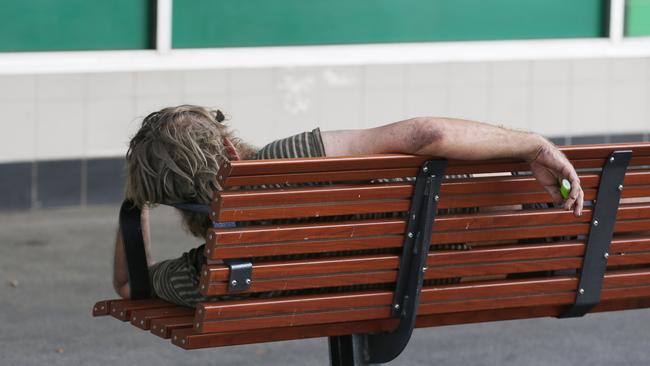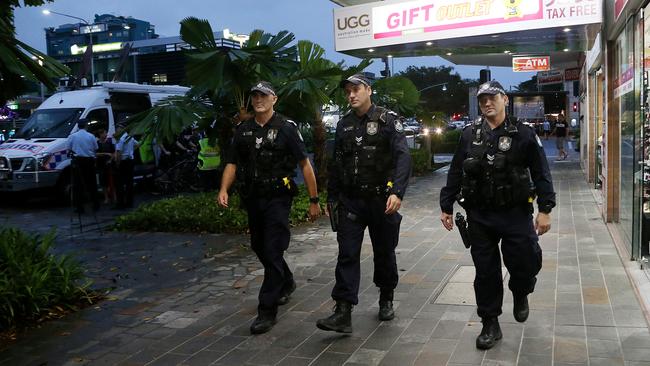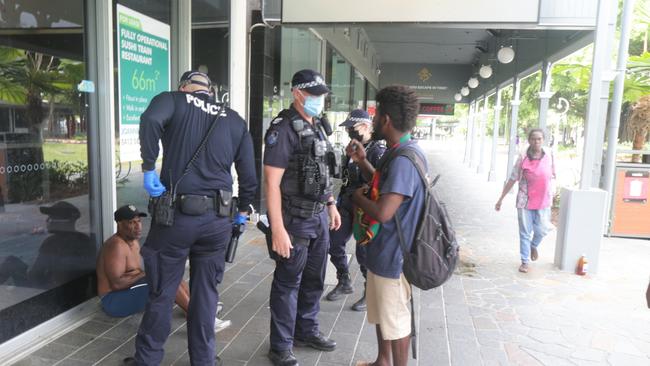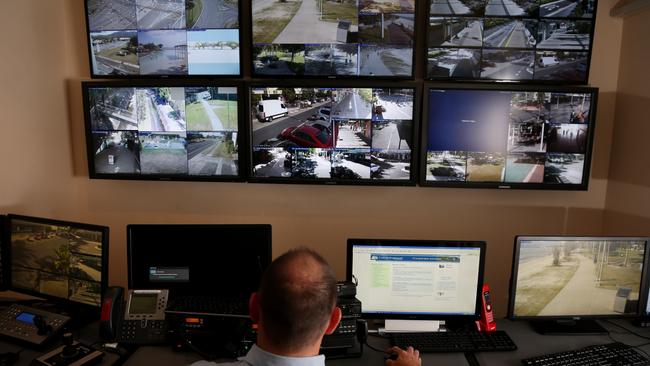Youth and drunks targeted in re-think of ineffective safety policy
A radical plan to end crime plaguing the city centre could mean the introduction of “wet zones” for rough sleepers and a youth safe night shelter in a rethink of a current policy that’s ‘not working’.
Cairns
Don't miss out on the headlines from Cairns. Followed categories will be added to My News.
A RADICAL new plan to address crime and anti-social behaviour plaguing the Cairns CBD could mean the introduction of “wet zones” for alcohol-dependent rough sleepers and a youth safe night shelter under a fresh approach to creating a safe space in the city.
Outlining a four-year plan to address violence, drug use, graffiti, fighting, public toileting and anti-social behaviour, the Cairns Community Safety Plan was unanimously endorsed by Cairns Regional Council on Wednesday.
The comprehensive plan targets a problem cohort of about 130 rough sleepers known to be responsible for about 46 per cent of city disturbances.

The second group targeted by the program is youth aged under 17 after council data confirmed teens committed more than 400 anti-social offences per year and 36 in February 2022.
Given skyrocketing City Safe complaints from 12 in 2017 to 233 in 2021, councillors agreed action to date had failed to address the issue.
Deputy Mayor and chair of the Planning and Environment Committee, Cr Terry James, said a new approach was needed to address concerning statistics.
“The reputation of our city is at stake and council needs to play a role in supporting traders, businesses, tourism operators and the community in tackling this issue,” Cr James said.
“That is not to say we are taking over the role of policing, which very much remains the jurisdiction of the Queensland Police Service and the state government.”
In a heartfelt speech CBD councillor Amy Eden cited a 1932 Cairns Post letter to the editor voicing concern about “disgraceful behaviour” behaviour witnessed at Anzac Park.
“Anti-social behaviour in the city is not new,” she said.
“What is happening is not okay. What has been done is not working. It is time to try something different.”
Pending budget allocation, council plans to develop a feasibility study that will guide the roll out of a “wet centre” for street drinkers and a service hub.

Wet centres offer a harm reduction approach for severely dependent drinkers unwilling to get off the grog and reduce the public visibility of street alcoholics.
After hours access to a night shelter for at-risk youths on the street after dark – unable to return to unsafe homes – has been proposed in efforts to reduce the number of unaccompanied minors in the CBD.
Addressing the “elephant in the room”, Division 9 councillor Brett Olds said he supported the new plan but questioned the spending of ratepayer cash on a project that fell outside the remit of local government.

“And we’ve got huge issues here and I can’t say the (state government) is not doing anything but they are doing very little,” he said.
Under the new plan “social connectors” would have an on-street presence and work collaboratively with police and specialist services, to support early redirection of people at risk of offending.

Councillor Rob Pyne backed the new strategy because it was “well thought out and intelligent.”
“I’m not supporting it, because I’m tough on homeless people,” he said.

“When you’re tough on homelessness, you’re basically kicking the most vulnerable members of our community.”
Mayor Bob Manning acknowledged the adverse social, cultural, and economic impact that crime in the CBD has on the city.
“More can be done to understand and address this complex issue and council wants to be part of the solution,” he said.
Increased restrictions on alcohol sales in the city would be considered by the pilot.
More Coverage
Originally published as Youth and drunks targeted in re-think of ineffective safety policy





